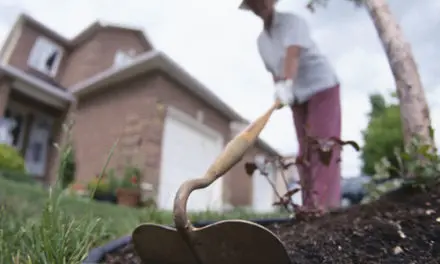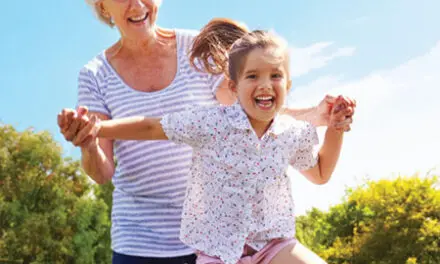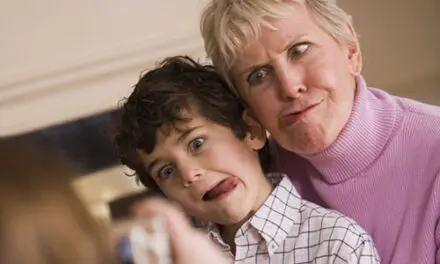NANA’S HOUSE by Teresa Bell Kindred
Eating Habits
When my brother and I were growing up, my mom fed us three meals a day. Each of those meals always included bread (she made homemade biscuits every day) and delicious desserts. Mom loved to bake, and she was famous for her made-from-scratch cakes and pies. If we wanted snacks in between meals, there were always biscuits and some of my Grandma Layne’s homemade jams, jellies and preserves. It’s no wonder I grew up loving sweets and eating big meals.
But that’s not the way most toddlers eat, and neither should I. My husband I have 7 grandchildren, and while that doesn’t make me an expert, I can’t help but notice some habits they have that I should cultivate for myself—and perhaps you should too!
Think Small Portions
We don’t have to have a huge meal to be full. In fact, we feel better if we don’t. Think about that bloated feeling you get after consuming Thanksgiving Dinner, where all you want to do is go take a nap. We also don’t have to eat everything on our plates. My family called cleaning your plate “being in the clean plate club,” and we were praised for eating everything. The thought that I should eat it all carried with me well into my adulthood.
Young children don’t typically eat a huge amount of food at once. They sort of graze throughout the day like sheep. Many experts recommend eating 6 small meals a day to lose weight. The trick to making that work is limiting the number of calories in each of those meals. If we eat more often and limit our calories, we can actually lose weight while feeling full throughout the day.

Play Hard
If you haven’t followed along behind a toddler lately, I can assure you that it’s exhausting. Just imagine how many calories they burn during a day!
If we could all find one physical activity (walking, tennis, yoga) we enjoy doing and put as much energy into it as toddlers, just think of how much healthier we would be. Or find a toddler and offer to babysit. It won’t take you long to get some exercise!
Laugh Often
Is there any sound sweeter than children’s laughter? Just listening to my grandchildren laugh never fails to make me smile, and laughter is actually good for us.
Laughter can…
- lower blood pressure.
- increase vascular blood flow and oxygenation of the blood.
- give a workout to the diaphragm and abdominal, respiratory, facial, leg, and back muscles.
- reduce certain stress hormones such as cortisol and adrenaline.
- increase the response of tumor- and disease-killing cells such as Gamma-interferon and T-cells.
- defend against respiratory infections–even reducing the frequency of colds–by immunoglobulin in saliva.
Over the years many of us lose the ability to find laughter every day. Maybe it’s because of our circumstances, or maybe it’s because we just don’t go looking for it. Think of things that make you happy and make time to do them with a friend.
If you can’t think of anything to do or find a friend, then rent a funny movie or one of your favorite old TV comedies. Can’t think of any? Search for “funny movies” online. It’s worth a little effort to bring laughter into your day.
Try New Things
If you put an unopened box in front of a toddler, I can almost guarantee it won’t stay unopened. They are inquisitive by nature and love trying new things (unless it’s Brussels sprouts). As we age, we often become less curious. But according to Psychology Today, there are benefits to trying something new now and then. The article says in part that:
- Trying something new often requires courage. And needing to summon courage is itself a benefit.
- Trying something new forces you to grow.
- Trying something new opens up the possibility for you to enjoy something new. As the commercial says, “Try it, you’ll like it.” You just might!
Staying Hydrated
All my grandchildren love to drink water, juice or milk, and they drink a lot. I know … I’ve changed all their diapers. As we get older though, we may find drinking fluids harder. For example, my mother hated water and loved iced tea. She drank coffee in the mornings and iced tea the rest of the day. I followed in her footsteps. Coffee and tea are both diuretics and when I started going to the bathroom every 5 minutes and began having sleeping problems at night I cut out the tea and cut back on the coffee, but I still didn’t drink water.
My chiropractor talked to me about the importance of drinking water and so did my medical doctor. I still don’t like it, but I am doing better and I can tell a difference in the way I feel.
Drinking fluids is crucial to staying healthy and maintaining the function of every system in your body, including your heart, brain, and muscles. Fluids carry nutrients to your cells, flush bacteria from your bladder, and prevent constipation.
Water is simply too important to the makeup of our bodies to ignore. If you don’t believe me read this.)
There are lots of things kids don’t know, but when it comes to taking care of ourselves, it’s worth taking some tips from toddlers!
.

Teresa Kindred is a freelance writer, former teacher, and author of several books, including The Faith-Filled Grandmother. She’s the mom of five grown children and “Nana” to six precious grandchildren. She and her husband live in Kentucky. Her blog for grandparents is at NanaHood.com.




